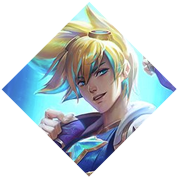Viktor, the Machine Herald, is now one of the few Runeterra characters whose story is entirely rewritten, with everything except for his concept being changed. Netflix’s Arcane returned in November 2024 and pushed Viktor far beyond the sympathetic striver we met in Season 1. Meanwhile, Riot has begun folding that screen version back into the game, polishing away some long-standing old lore beats. Here’s how the two threads now line up (or rather, fail to do so).
Origins & Early Life
League of Legends
Born on Zaun’s Entresol level, young Viktor was obsessed with eliminating “human error” after witnessing chem-spills and factory explosions; at the College of Techmaturgy he designed Blitzcrank, only to have Professor Stanwick claim the credit.
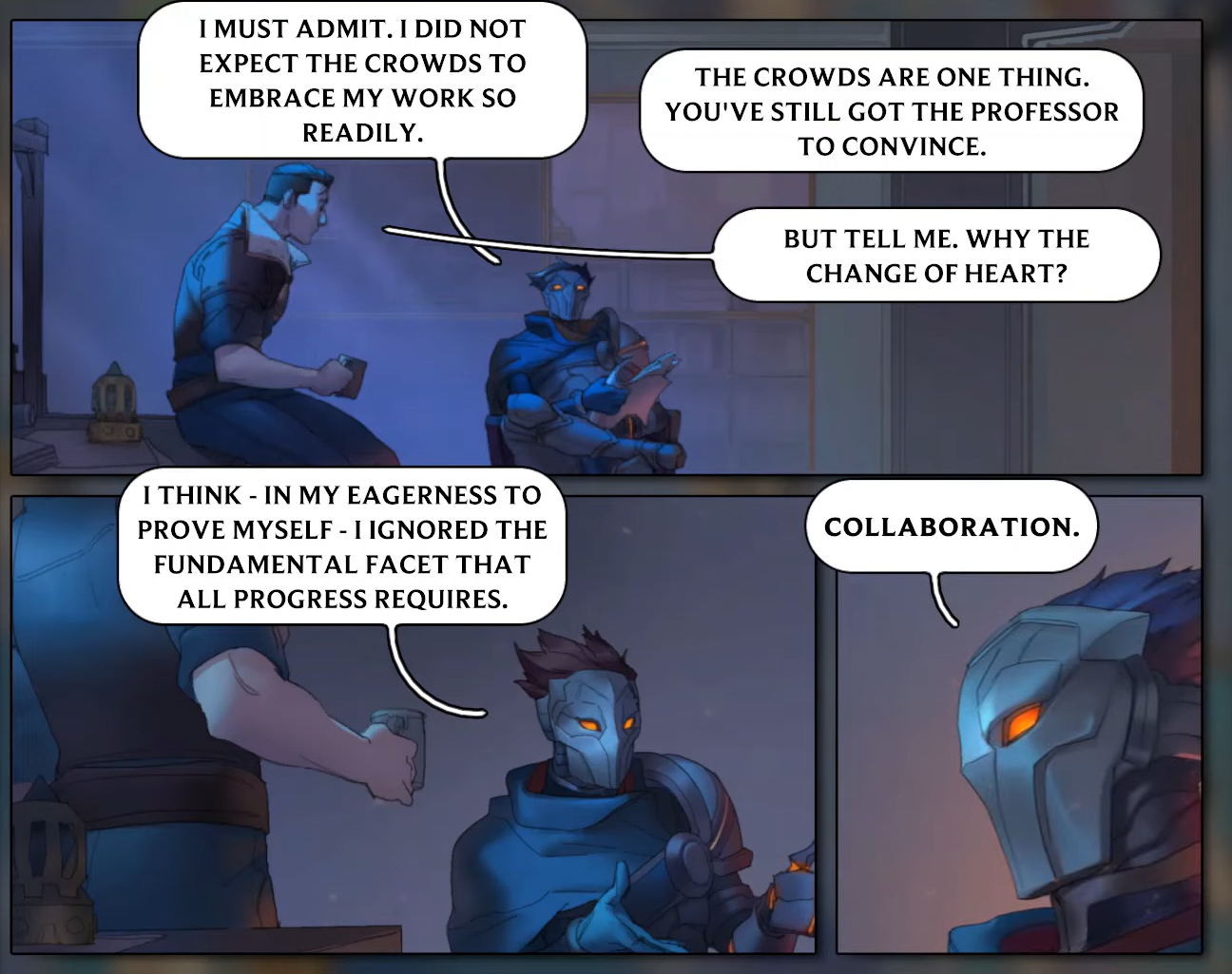
Arcane
Season 1 already showed him as a frail prodigy who clawed his way to Piltover’s Academy. Season 2 keeps that back-story but omits Blitzcrank entirely, framing Viktor’s formative betrayal around how Piltover’s Council sacrifices Zaun for stability rather than any single theft.
Both versions ground Viktor’s idealism in Zaunite suffering, but only the game’s biography leans on Blitzcrank and Stanwick as a personal catalyst. Arcane leans more into something we've seen in other Zaunite characters — the personification of different aspects of social inequality.
While Jinx leans more into the inevitability of unrest born from a lack of social justice, Viktor, being disconnected from Blitzcrank or Stanwick, fully takes on the mantle as a primordial personification of a lack of social mobility in Piltover.
Friendship, Fracture, and Jayce
Arcane’s Season 2 Act 1 opens with Jayce using the Hexcore to drag his dying friend back from the council-chamber blast, cocooning Viktor in raw Hextech energy. When Viktor awakes — body half-metal, half-Arcane — their partnership formally ends. Jayce returns to politics, Viktor descends to Zaun.
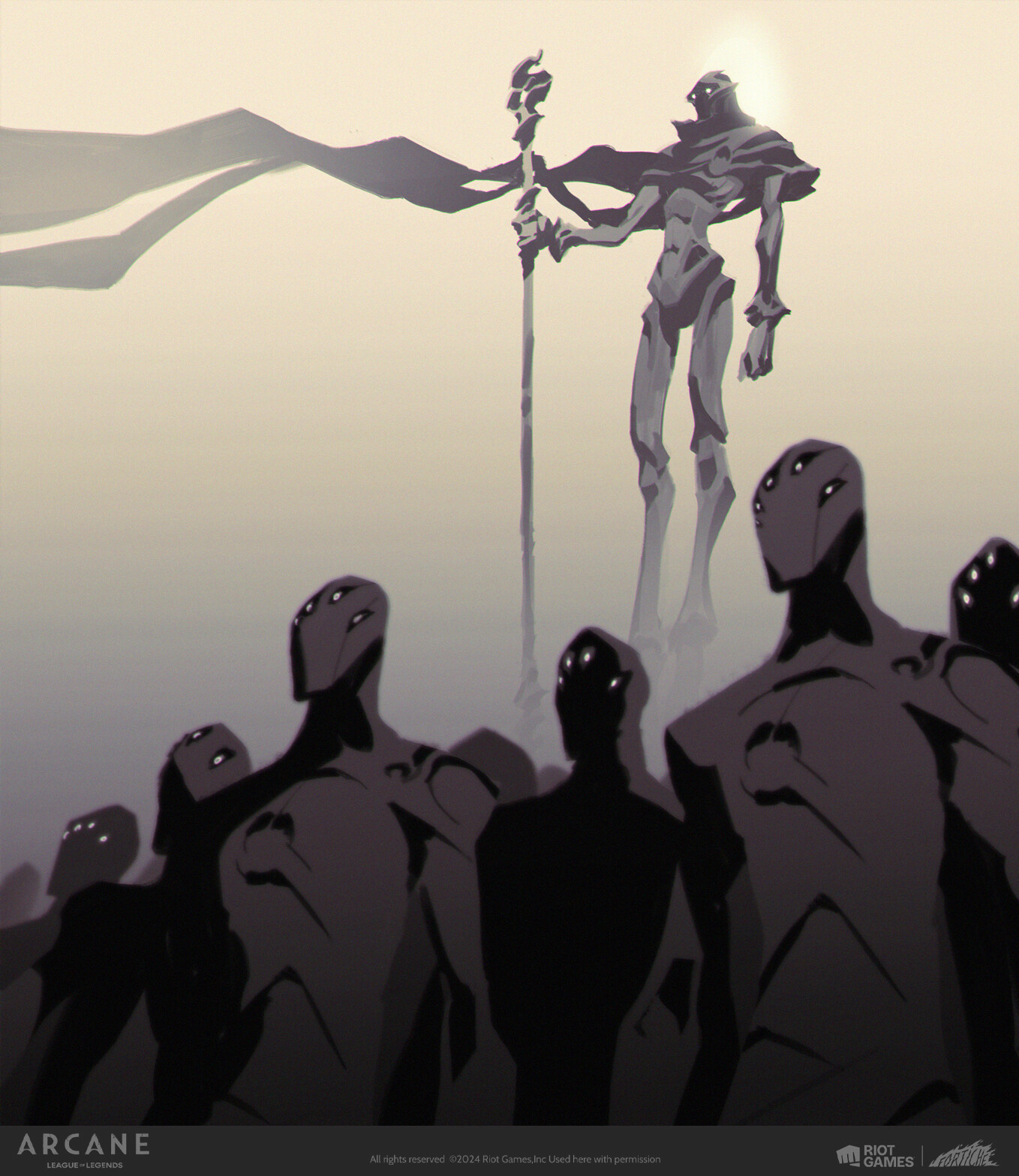
League’s prime timeline retains only a brief professional rivalry: the two men co-author an automation paper before diverging on ethics. Arcane now supplies the emotional heft Riot’s text lacked.
Resurrection and Radicalization
The Hexcore chisels away the last of Viktor’s frailty; steel limbs, arcane filaments, and a third arm blossom straight from his spine. In Zaun, he neutralises Shimmer addiction by rewriting cellular code—a miracle that wins him disciples, yet drains him of the power to help others.
The Cult of the Glorious Evolved is introduced, but here we take a hard turn from what we come to expect in League of Legends. In the original canon, he singlehandedly starts to convert his body into machine. His hexclaw is a design of his own, rather than a gift of the Arcane.
It's left up to interpretation if any of Arcane Viktor's followers are sentient, or have free will. The original Viktor's followers are simply fellow Zaunites who use Viktor's technology to close the physical gap and patch up disabilities created by bad working conditions in Zaun.
The Hexgate Incident
Arcane’s last act shows Viktor hijacking Piltover’s Hexgate nexus, lacing Arcane and Shimmer to create a neural lattice that overrides free will. He traps Jayce in a mind-scape and begins broadcasting “peace” by erasing emotion across Runeterra.
Ekko’s time-device and Jayce's rune crystal shatter the experiment, apparently erasing both men from linear time.
Part of this is the difference in medium. League of Legends is a live service game, that depends on a constant influx of new contents. This is why most backstories are "setups" for larger things down the line. Arcane is a closed story, designed to have an ending, and this is simply the ending that was chosen for Viktor.
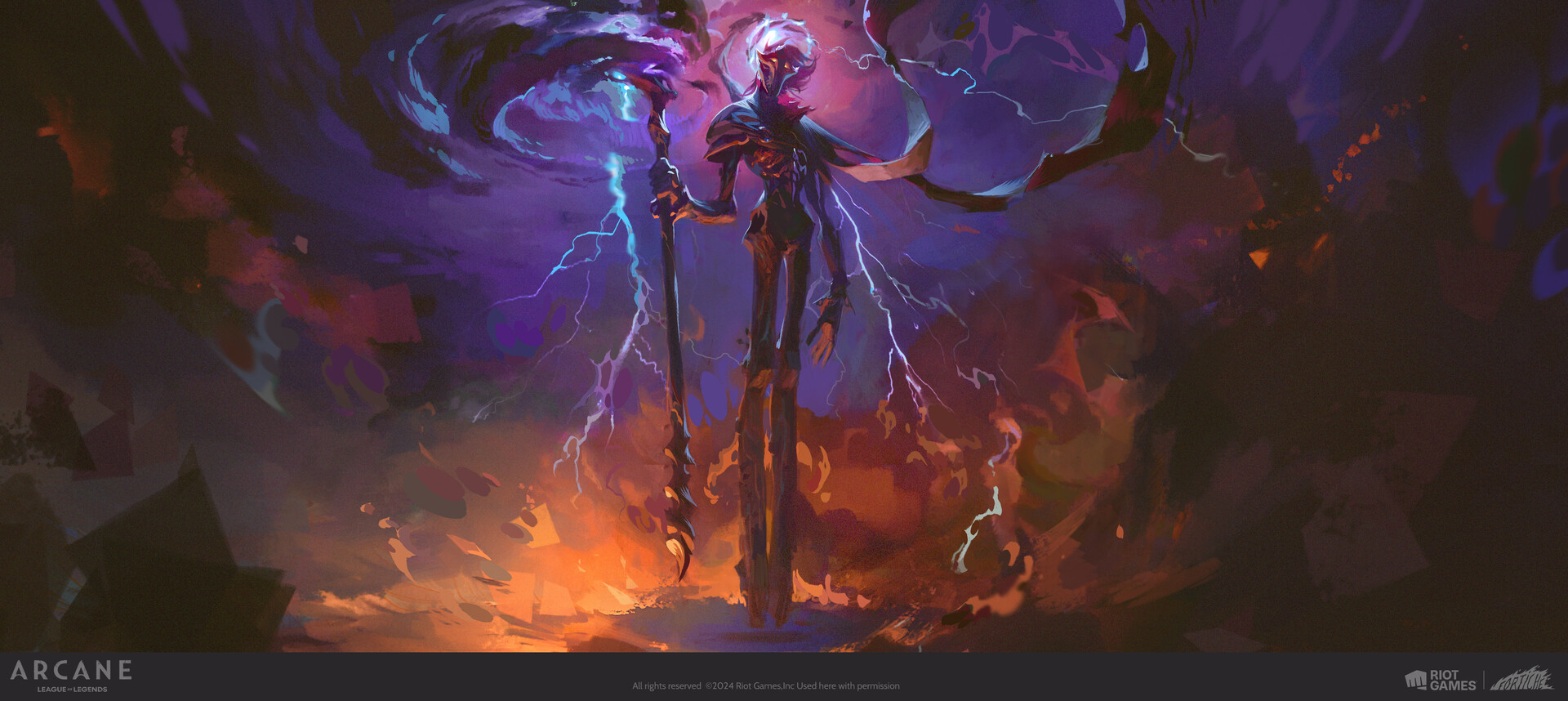
However, there's a large theme here that gets taken away from Viktor. After becoming a messianic figure after Jayce used the Hexcore to reanimate him, he is thereafter "controlled" by magic. At the very least, a large part of his conscious mind was affected by the Hexcore.
This is a large amount of agency taken away from Viktor. It turns the story away from the impoverished using their gifts to arm themselves against power, and into a story of scientists going too deep in things they were never meant to study.
The new backstory of Viktor, Jinx, Ekko and other Zaunites does a less-than-stellar job at tying their environments to who they are. Their motivations shifted from valid revolutionary fervor to interpersonal issues. While still valid motivations, they create a large vaccuum in the story, where no antagonists are truly fueled by the unjust nature of the system around them.
The Glorious Evolution
So, finishing up, let's wrap to Viktor's whole point. The "Glorious Evolution". What does it mean for each Viktor?
For the original canon, this meant taking control of your own flesh and shaping it according to your needs. Rejecting social taboos and taking the form you wish, and ultimately, using these new forms to overcome those who have wronged you.
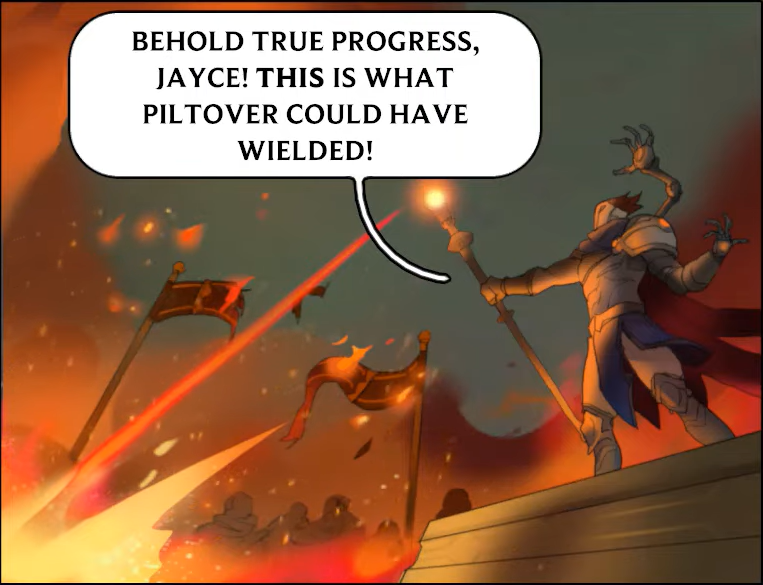
However, for Arcane's Viktor, the final, Glorious Evolution is a response to the following dilemma:
Rage. Compassion. Hate. Two sides of the same coin. Inextricably bound. That which inspires us to our greatest good, is also the cause of our greatest evil.
Viktor sees the cycle of violence and hatred (which Arcane prominently) features as the cancer predating on humanity. His Glorious Evolution is the cure to that cancer, in the form of eliminating empathy and love altogether, in order to stop the cycle. This is symbolized with Sky’s death in Season 1 at the hands of the Hexcore, which claims a “sacrifice” of blood for each blessing it grants to Viktor.

In giving up the only other Zaunite who was friend to Viktor, he sacrificed his very empathy up to the Arcane. This is a theme that was initially introduced with Singed during Season 1, with his quote “Loneliness is often the byproduct of a gifted mind”. This is once again hammered home when Singed meets an older Viktor near the end of the Season, reiterating to the scientist that “Love and legacy are the sacrifices we make for progress”.
Where Does This Leave Both Viktors?
The definition of "bad guy" can be a little vague for our purposes. If we're talking whether or not Viktor is an antagonist, then...
Officially, yes.
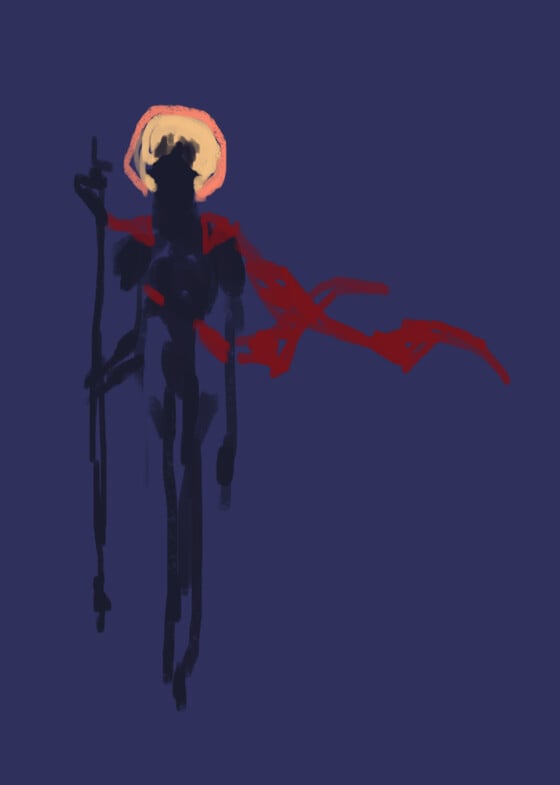
Since Viktor's lore has been shifted to fit the one in Arcane, where he is indubitably an antagonistic force, then yes, he is rightfully an antagonist. However, many veteran Viktor players miss the days when this was more left up to interpretation. When Jayce and Viktor were both portrayed as imperfect solutions, rather than a clear "redeem the bad guy" story.


